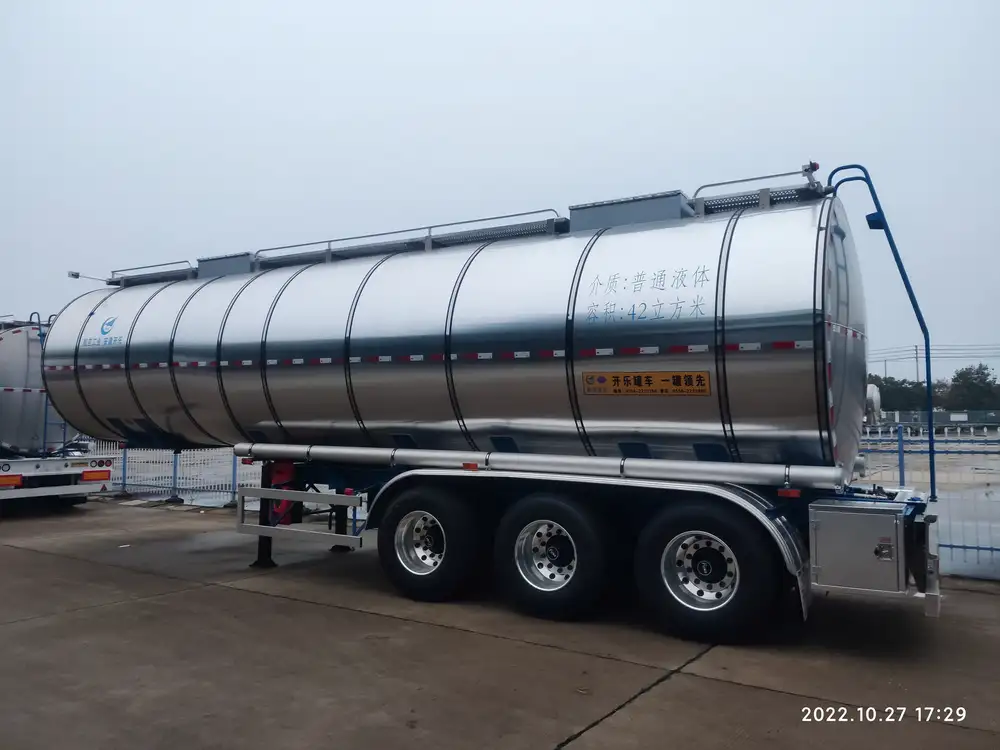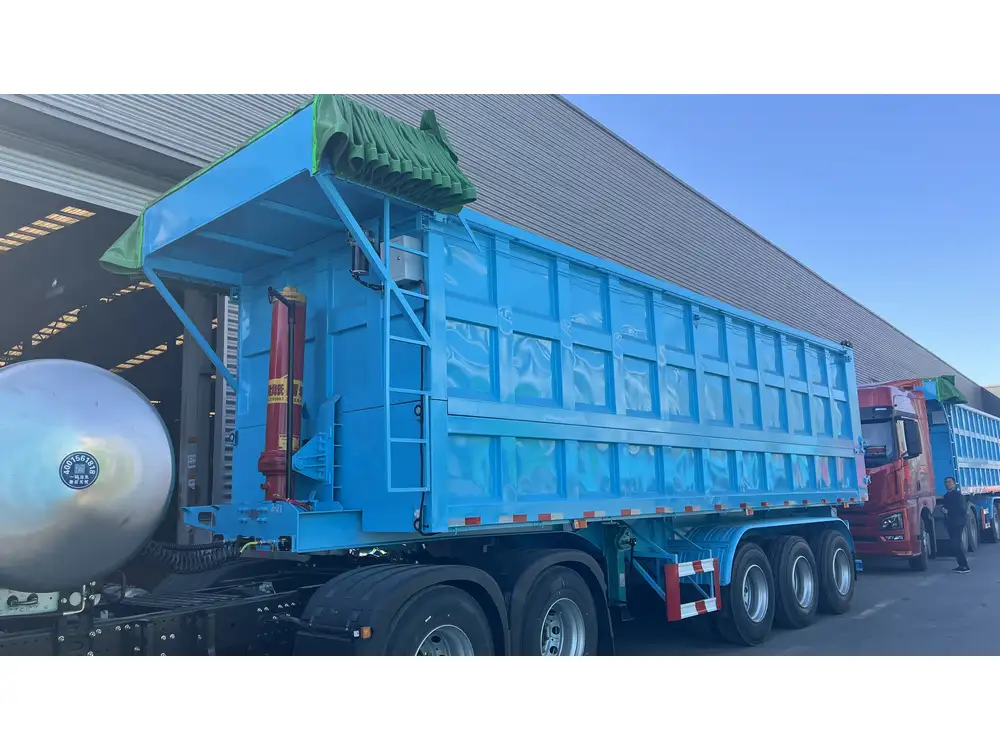The world of trailers is intricate, with a multitude of types and specifications catering to various transport needs, especially in construction and landscaping. One common query among users considering the purchase or use of a trailer is, “How much does a 14-ft dump trailer weigh?” Understanding this metric is critical for both operational efficiency and legal compliance. In this article, we delve into the factors that contribute to the weight of a 14-ft dump trailer, the specific weights of various models, and the implications of this information on users’ purchasing and utilization decisions.
The Weight Breakdown of a 14-ft Dump Trailer
Common Specifications
Before discussing weight specifics, it’s essential to note the general construction features of a 14-ft dump trailer. Typically, these trailers are built with robust materials such as steel or aluminum to withstand heavy loads. They tend to feature:
- Capacity: Generally, a 14-ft dump trailer can handle anywhere from 7,000 to 14,000 pounds depending on the configuration.
- Dimensions: 14 feet long, often with a width of about 6 to 8 feet and a height of 2 to 4 feet.
- Axle Configuration: Most trailers come with either two or three axles, influencing stability and load-bearing capabilities.

Average Weight Insights
For a clear understanding, we break down the average weight of a typical 14-ft dump trailer, noting that this can slightly vary based on configurations and manufacturers:
| Component | Weight (lbs) |
|---|---|
| Chassis & Frame | 1,500 – 2,500 |
| Bed (Steel/Aluminum) | 1,000 – 1,800 |
| Axles (2 or 3) | 500 – 800 |
| Electrical Components | 150 – 250 |
| Wheels & Tires | 400 – 600 |
| Total Average Weight | 3,500 – 5,250 |
From the table above, while the lightest possible configuration might hover around 3,500 pounds, heavily built models equipped with extra features can approach or exceed 5,250 pounds.
Factors Influencing the Weight of a Dump Trailer
Every component within a dump trailer contributes to its overall weight. Here’s a more refined look at what sways these figures:
Material Choice
The material used in construction is perhaps the most significant factor regarding weight.
- Steel: Heavier but offers immense strength and durability, suitable for rugged use.
- Aluminum: Lighter and resistant to corrosion but might not sustain as heavy loads as steel.

Features and Accessories
Every added feature can tip the scales. For example:
- Hydraulic Systems: More sophisticated hydraulic mechanisms add to the overall weight expenditure.
- Side Walls: Adding side walls can increase weight but improve capacity and usability.
- Ramps and Extensions: Ramps designed for loading equipment can also boost total mass.
Type of Axles
The choice between dual and tri-axle trailers creates variance in weight as well. Tri-axle trailers generally weigh more but offer suitable weight distribution:
- Dual Axles: Enhance maneuverability and are often lighter.
- Tri-Axles: More stability under heavier loads but contribute more to overall weight.
Manufacturer and Design Variations
Each manufacturer has its design philosophy. Brands may offer lightweight models with innovative design approaches that enhance strength-to-weight ratios, thus listing the same trailer at different weights.

Why Knowing the Weight Matters
Understanding the weight of a 14-ft dump trailer is not merely a logistical concern; it pervades several practical considerations that users must heed.
Legal Implications
Trucking and transport regulations stipulate weight limits. Exceeding these limits can lead to hefty fines or other repercussions:
- Weight Limits: Ensure your vehicle meets the specified Gross Vehicle Weight Rating (GVWR).
- Local Regulations: Compliance varies by state; always check local laws pertaining to transport and towing regulations.
Towing Compatibility
Engaging a dump trailer that outweighs your vehicle’s towing capacity can destabilize the towing setup and damage both vehicular and trailer components. Always refer to:
- Towing Capacity: Match your vehicle’s tow rating with the trailer weight.
- Hitch Classes: Ensure that your hitch class can handle the trailer weight for safety.

Operational Efficiency
The weight of the dump trailer directly impacts fuel efficiency and handling. Heavier loads:
- Impact Fuel Economy: More weight requires more power, which could diminish miles per gallon.
- Affect Braking and Handling: The relationship between total weight and braking distance is critical; heavier trailers necessitate more stopping distance.
Selecting the Right 14-ft Dump Trailer
When navigating the market for a 14-ft dump trailer, prospective buyers should evaluate several key aspects that go beyond just weight.
Usage Considerations
Identify what you plan to use the dump trailer for. Applications vary greatly:
- Construction Work: Heavy-duty models may be necessary due to frequent load-bearing challenges.
- Landscaping: Sometimes, a lighter model suffices for less intense tasks.

Build Quality
Evaluate trailers based on their quality and durability attributes. Strongly built trailers may weigh more, but they’ll offer longevity, especially if used heavily.
Warranty and Support
Manufacturers that provide solid warranties demonstrate confidence in their products. This is crucial for any serious investment.
Resale Value
A well-crafted trailer typically maintains a higher resale value than its poorly made counterparts. Consider brands known for durability and efficiency.

Frequently Asked Questions (FAQs)
How Can I Effectively Maintain a 14-ft Dump Trailer?
Regular maintenance, including checking tire pressure, inspecting brakes, and lubricating moving parts, extends the life of your trailer and ensures it remains in optimum working condition.
What’s the Best Way to Load a 14-ft Dump Trailer?
Always ensure load distribution is uniform to maintain stability during transit. Avoid exceeding the trailer’s load capacity and secure loads to prevent shifting.

Can I Customize My Dump Trailer?
Absolutely! Many manufacturers offer custom features, from additional axles to specialized hydraulic systems. Discuss your needs with the provider to find suitable options.
Conclusion
Understanding the weight of a 14-ft dump trailer is crucial for anyone looking to purchase or utilize these workhorses in their daily operations. By dissecting the specifications, factors influencing weight, and how this knowledge guides decision-making, this article aims to provide a thorough understanding that facilitates informed choices.
By addressing user queries and ensuring regulatory compliance, we empower customers to select the right dump trailer tailored to their unique requirements, optimizing both safety and functionality. Therefore, whether your objectives are construction, landscaping, or general hauling, comprehending the weight implications enhances your operational productivity and safety. The journey into the world of dump trailers is intricate, yet informed decisions pave the way for a smoother operational experience.



